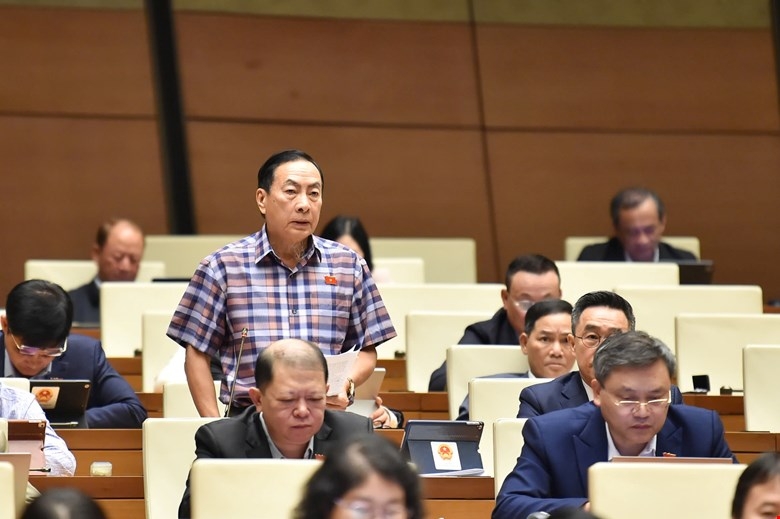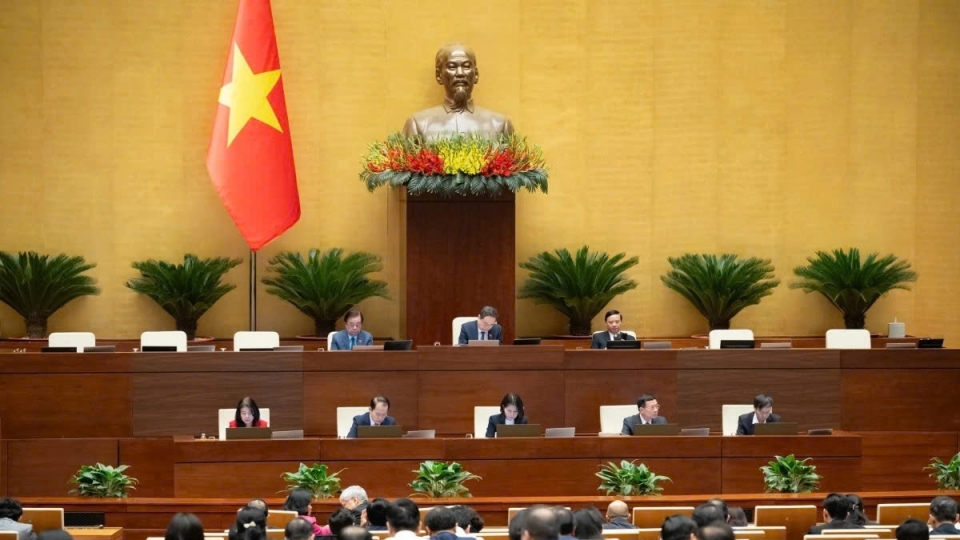NA debates Investment Law amendments to remove barriers, improve quality
VOV.VN - Deputies to the ongoing session of the National Assembly discussed amendments to the 2020 Investment Law in Hanoi on November 27, focusing on reducing unnecessary business conditions, creating a transparent and open environment.

They noted that the draft of amendments has made efforts to eliminate 25 conditional business sectors, but further review is needed to ensure rationality and effectiveness.
Deputy Dao Chi Nghia from Can Tho city proposed adding minimum quality and professional standards for sectors that are removed, shifting from prior approval to post-operation professional oversight, thereby protecting public interest and market transparency while respecting constitutional freedom of business.
Deputy Le Hoang Anh from Gia Lai province emphasised the need to narrow the list of sectors and move technical requirements to decrees or specialised standards. He cited sectors such as food, e-commerce, animal feed, aquaculture, pesticides, and construction/testing services, which mainly involve standards and technical safety, and can be effectively managed through post-inspections and professional certification instead of being conditional business sectors in the law.
He also suggested a three-year periodic review to automatically remove outdated sectors, preventing the proliferation of hidden sub-permits.
Regarding specialised management responsibilities, Deputy Pham Van Hoa from Dong Thap province recommended that relevant ministries take charge of remaining conditional business requirements, instead of leaving them to the Ministry of Finance or local financial departments. This would clarify responsibilities, improve efficiency, and reduce administrative burdens on businesses.
On special investment incentives and procedures, Deputy Ha Sy Dong from Quang Tri province praised the draft amendments for allowing projects in industrial parks, export processing zones, and economic zones to obtain investment registration certificates within 15 days without multiple approvals, while enjoying special incentives.
However, he underscored the need for selective criteria, prioritising national technology projects, large capital scale, mandatory technology transfer, and high-skilled workforce training, with clearly defined accountability for delayed approvals.
In response to the deputies’ feedback, Minister of Finance Nguyen Van Thang stated that the Ministry would continue reviewing and trimming conditional business sectors. The initial draft aimed to remove 25 sectors, but after rigorous review, the number is expected to reach at least 50.
After the law takes effect, he said, the Government would assign relevant ministries and agencies to further revise investment and business conditions, shifting to a post-inspection mechanism and management based on standards and regulations, ensuring the consistent and full exercise of citizens’ and enterprises’ freedom to conduct business.




